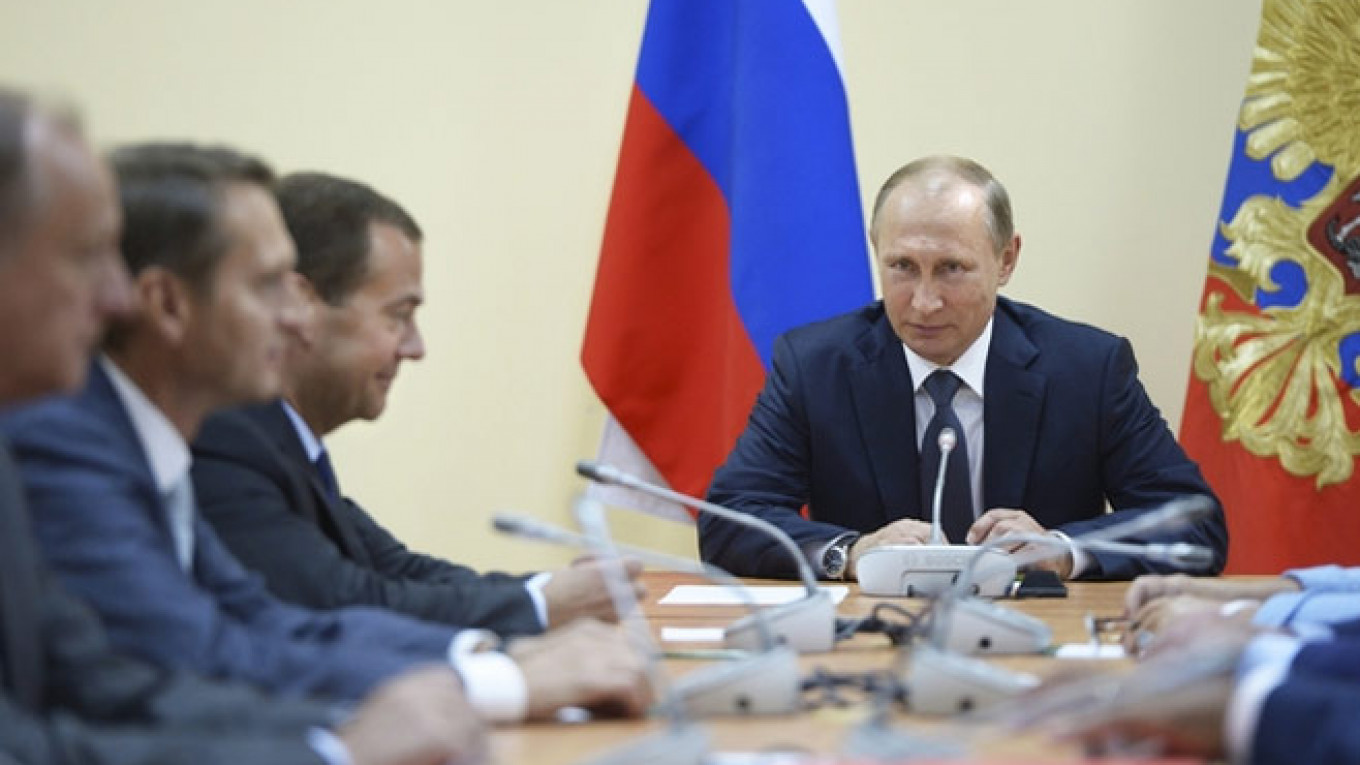Whenever an appeal reaches President Vladimir Putin to spare someone getting crushed by Russia's repressive judicial machine, he always replies with the same, sardonic comment: "How could I influence the decision of the court? It is up to them to decide." Of all people, Putin knows that every court decision concerning the opposition is handed down from the Kremlin administration. But most interestingly, Putin and his administration are unable to believe that the court system functions differently anywhere else.
The Permanent Court of Arbitration in The Hague ruled in favor of former Yukos shareholders, with the result that Russia must now pay the plaintiffs the enormous sum of $50 billion plus accrued interest. Moscow announced that it does not recognize the decision of the court and therefore will not pay.
The plaintiffs' only recourse was to request the court to seize Russian assets abroad as restitution. That process is already under way in some countries, and just beginning in others. Moscow would find it especially painful if the United States were to seize its very substantial assets in that country. Despite the anti-U.S. hysteria in the Russian media, the Russian government continues to keep its currency reserves in U.S. dollars, U.S. assets and U.S. securities.
What should the Kremlin have done once it received a notice from Washington that it had received a writ of execution from The Hague and that a date had already been set for considering the seizure of Russian assets? It should have immediately hired the best U.S. lawyers it could find and taken part in the legal proceedings.
But that is not Putin's style. After all, in his opinion, there is no such thing as an independent judiciary and the U.S. White House must be controlling the outcome. Therefore, the Russian Foreign Ministry wrote to the U.S. State Department that "Any attempt to use enforcement and executive measures against Russian property located on U.S. territory will be considered as a basis for Russia to take appropriate and proportionate retaliatory steps against the U.S., its citizens and its legal entities."
In other words: If your court makes a decision against us, then our court will pass rulings infringing on your citizens and legal entities.
After receiving that letter, the U.S. State Department informed the Russian Embassy that, of course, they could choose not to take part in the process, but in that case, the matter would be considered without their participation.
The offended Russian leadership took a step back and immediately began slinging mud on the U.S. justice system through every media outlet available to it. And finally, on the very last possible day, the Kremlin hired the U.S. law firm White & Case to defend its interests. That firm, staggered by the enormity of the task facing it, immediately sent a request to the court to postpone the trial for two months — to which the U.S. court agreed.
The fact that Russia has officially joined the case should not deceive anyone. At any stage of the proceedings, and especially after the court hands down its decision, the Kremlin authorities can declare that the court is only another tool for the destruction of Russia.
That is what happened when the Permanent Court of Arbitration in The Hague was trying the Yukos case: Russian representatives participated in all stages of the proceedings, and after the ruling turned out unfavorable to Moscow, the Kremlin suddenly declared that the court had lacked the authority to examine the case all along.
The Russian Constitutional Court recently ruled that Russia has the right to choose which of the ECHR decisions it should honor, and which it could ignore. All of this is happening not because Russian officials are legally illiterate, but because they simply cannot get their heads around the idea that an independent judiciary can exist anywhere in the world.
Andrei Malgin is a journalist, literary critic and blogger.
A Message from The Moscow Times:
Dear readers,
We are facing unprecedented challenges. Russia's Prosecutor General's Office has designated The Moscow Times as an "undesirable" organization, criminalizing our work and putting our staff at risk of prosecution. This follows our earlier unjust labeling as a "foreign agent."
These actions are direct attempts to silence independent journalism in Russia. The authorities claim our work "discredits the decisions of the Russian leadership." We see things differently: we strive to provide accurate, unbiased reporting on Russia.
We, the journalists of The Moscow Times, refuse to be silenced. But to continue our work, we need your help.
Your support, no matter how small, makes a world of difference. If you can, please support us monthly starting from just $2. It's quick to set up, and every contribution makes a significant impact.
By supporting The Moscow Times, you're defending open, independent journalism in the face of repression. Thank you for standing with us.
Remind me later.


